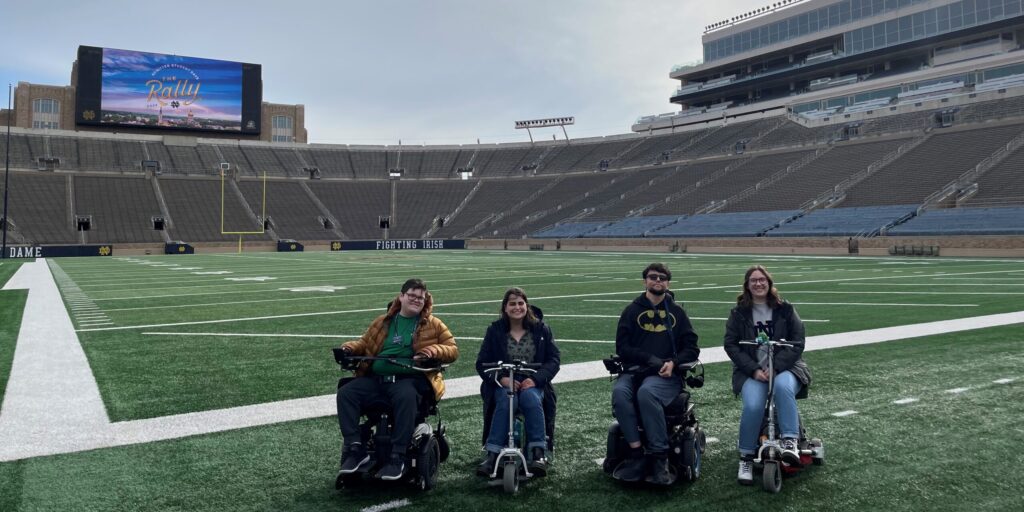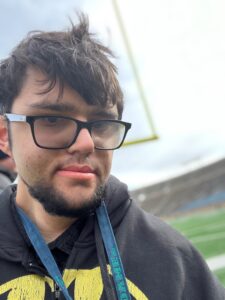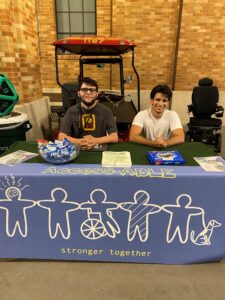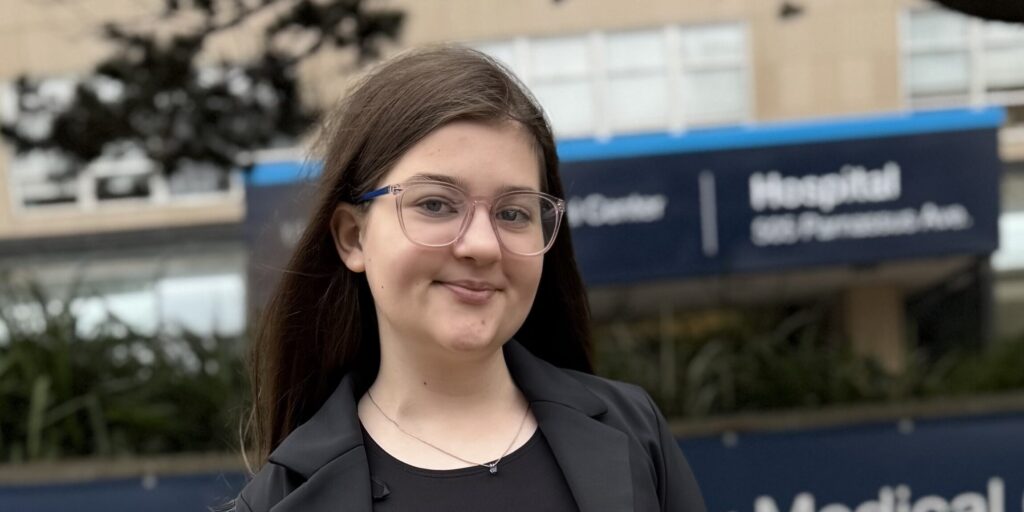
MDA Ambassador Guest Blog: Embracing Disability and Advocating for an Access-ABLE College
By Scott Patterson | Friday, August 23, 2024
5 Second Summary
MDA Ambassadors play an essential role in furthering MDA’s mission while representing and empowering the neuromuscular disease community. Quest Ambassador Guest Blog series provides a platform to share their personal stories, perspectives, and experience.
Read more personal stories from members of the neuromuscular community about their College Experience as they share their journey, accomplishments, advice for accommodations and overcoming barriers, and insights into navigating college life with a disability.
Scott Patterson is from Pittsburgh, Pennsylvania, and lives with facioscapulohumeral muscular dystrophy (FSHD). He is currently studying Biology at the University of Notre Dame. And a fun fact about him is that he is left-handed.
For me, going to college when I was 18 years old was an endeavor that was simultaneously nerve-racking and exciting. I was embarking on a new and important phase in my adult life – a pivotal phase to be sure. While I was excited for this chance to really thrive and experience what it would be like to be an independent person living on my own, there were also challenges that gnawed at my confidence at the beginning of my collegiate studies. For one, I had been diagnosed with fascioscapulohumeral muscular dystrophy (FSHD) three years prior, and I was not quite ready to accept my identity as a member of the disabled community. I still saw parts of myself as “less than” or things that I needed to hide while among my peers in this new, daunting setting. Additionally, I didn’t know if I could achieve the college degree that I wanted with the limitations I had. What if my disability progressed to a point where I could no longer keep up with the demands of college? This situation seemed dire, and in a lot of ways it was, but clearly, since I am writing this statement, this story ends happily.

Representing Access-ABLE at the Activities Fair at the University of Notre Dame with the former president of Access-ABLE
When I arrived at Notre Dame, I was about as nervous as I ever had been. How was I going to make friends, what if people think my wheelchair is weird, what happens when I can’t take part in physical games? Well, I can say that one of the keys that I have found to success in making friends was reaching out, being confident, and being myself. So many of the people that I have met and befriended were those who I sat next to completely randomly and struck up a conversation – and many of these people are now my best friends. I have found that many people’s stares or apprehension towards me came not from malice, but from a lack of understanding of my physical condition and what it entails. After a brief explanation, the barriers of implicit stereotypes regarding those with disabilities completely fell to the wayside. This leads into my next point and what led me to my role in disability advocacy at Notre Dame.
I mentioned how I saw certain traits of mine (such as my power wheelchair, my inability to grin, my lack of grip strength, and other symptoms) as aspects of me that were inferior to others. I often tried to hide who I truly was, as I feared that people would begin to see me as different. However, it was the support of my friends and family that helped me achieve a strengthened self-concept. That new way of seeing myself allows me to take pride in my identity as a disabled person, and as someone who is currently the only person at Notre Dame (to my knowledge) who uses a power wheelchair in the biology department. I specifically remember one experience going out to a restaurant with my very close friend and other friends. She knows my condition quite well and she knows that I struggle to cut my food. She immediately helped me cut my food, expecting no thank you or anything in return, and simply smiling when she was done. Moments like these (which are honestly innumerable for me) helped give me confidence in who I was.

Giving a tour to incoming first year students with disabilities on behalf of Access-ABLE along with fellow disability rights advocates.
In regard to my advocacy, because I was finally beginning to shed the shame and self-depreciation I had clung onto in the past, and because I was finally able to accept my new identity, I was ready to try to join a community of people like me. At Notre Dame, Access-ABLE is a student led organization devoted to advocacy for undergraduate and graduate students at the University who have a disability (or for those who are allies) to engage in fun, informative, and serious discussions regarding accessibility on campus and in everyday life. When I found this community and joined in my second year of college, I felt like I had found my home. It was so refreshing to be among students and student leaders who understood what it was like not only to be disabled, but how that experience affected their thoughts and emotions. Our concerns were not merely listened to, either. They were incorporated into notes that were given directly to the department of Accessibility Services on campus, with our suggestions having a direct impact on students’ lives. From this organization, I learned how to practice self-advocacy with professors and how to effectively communicate my accessibility needs to them. After spending a semester in this organization, I decided that I wanted to take a more active role, and I joined the Board of Officers, becoming director of Access-ABLE. In this position, I served both as a representative for Access-ABLE at fundraising events and meetings (creating PowerPoints to ask people questions for feedback) and as a representative of Access-ABLE at multiple university functions (such as one for health and wellness on campus).
After serving as the Director of Access-ABLE in my junior year, I was given the honor of becoming the club’s Co-President along with my very good friend, who had served as President the year prior. This coming fall will be my first semester as Co-President, and my fellow Co-President and I have already made a major decision, making our meetings weekly instead of once every two weeks. We are also coordinating with other advocacy groups on campus to spread our message to as many students as possible. I am incredibly excited to work with my peers on the Board of Officers, as well as members of student government, in order to have the best year for Access-ABLE yet!
Next Steps and Useful Resources
- For more information about the signs and symptoms of Facioscapulohumeral muscular dystrophy (FSHD) , as well an overview of diagnosis and treatment concerns, an in-depth review can be found here.
- To learn more about MDA’s Advocacy program, visit here.
- To learn more about MDA’s Young Adult Programs, visit here.
- MDA’s Resource Center provides support, guidance, and resources for patients and families. Contact the MDA Resource Center at 1-833-ASK-MDA1 or ResourceCenter@mdausa.org
- Stay up-to-date on Quest content! Subscribe to Quest Magazine and Newsletter.
Disclaimer: No content on this site should ever be used as a substitute for direct medical advice from your doctor or other qualified clinician.




